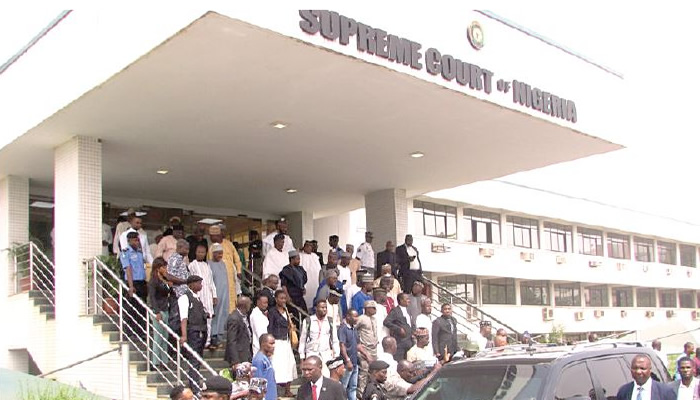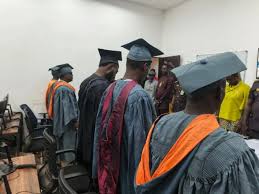
Council autonomy: ALGON, NULGE kick as govs get N2tn LG allocations
According to statistics, between July and December 2024, the Federation Accounts Allocation Committee distributed N2.08 trillion in allocations to Local Government Councils.
Nevertheless, the funds were being sent to state government accounts in spite of the July 2024 Supreme Court decision that gave Nigeria's 774 Local Government Areas complete financial autonomy.
Officials and members of the National Union of Local Government Employees and the Association of the Local Governments of Nigeria have reportedly been irritated by this.
In an attempt to encourage autonomy and guarantee that the money given to local governments was used appropriately, the Supreme Court's historic decision mandated that funds intended for LGs be paid directly into their accounts, avoiding state agencies.
Almost half a year following the ruling, the Federal Government had not effected direct payment of allocations to the local governments, as directed by the apex court.
The Minister of Finance and Coordinating Minister of the Economy, Wale Edun, said the Federal Government was yet to commence direct payment to the respective LGs due to some “practical impediments.”
He added that a committee had been set up by the Federal Government to look at the practicability of the judgment.
The Federal Government, it was learnt, faced challenges implementing the ruling on local government financial autonomy, with concerns over its impact on salary payments and operational viability.
An analysis of communiqués released after the monthly meeting of Federation Accounts Allocation Committee showed that from July to December 2024, the total distributable revenue amounted to N8.351tn, which was shared among the Federal Government, States, and Local Government Councils. The disbursements for each month were as follows:
In July 2024, the total revenue shared was N1.354tn. The Federal Government received N459.776bn, while the States received N461.979bn and the Local Government Councils received N337.019bn.
In August 2024, the total distributable revenue increased to N1.358tn. The Federal Government received N431.079bn, the States N473.477bn, and the LGCs N343.703bn, a slight increase of N6.684bn from the previous month. This represents a 2 per cent increase in the amount allocated to LGCs.
The overall distributable revenue dropped to N1.203 trillion in September 2024. N374.925 billion went to the Federal Government, N422.861 billion to the States, and N306.533 billion to the Local Government Councils. This was a notable fall of N37.170 billion in LGC allocations, or 10.1% less than in August 2024.
The overall distributable revenue increased to N1.298 trillion in October 2024. N424.867 billion went to the Federal Government, N453.724 billion to the States, and N329.864 billion to the LGCs. Allocations to the LGCs increased by 7.6% from September to this point, totalling N23.331 billion.
In November 2024, the total distributable revenue reached N1.411 trillion, continuing the trend. N433.021 billion went to the Federal Government, N490.696 billion to the States, and N355.621 billion to the Local Government Councils. This was an increase of N25.757bn, or 7.8 per cent, compared to the previous month for LGC.
In December 2024, the total distributable revenue reached N1.727tn, the highest amount of the six-month period. The Federal Government received N581.856bn, the States N549.792bn, and the Local Government Councils received N402.553bn. This was the largest allocation to the LGs, with an increase of N46.932bn, which equated to a 13.2 per cent rise from November.
Over the six-month period, the total amount allocated to the Local Government Councils was N2.075tn out of the N8.351tn total distributable revenue. This allocation represents approximately 24.9 per cent of the total revenue shared.
There was a 72.06 per cent increase in the allocations to local governments between July to December 2024 when compared to the same period of the previous year.
This means that there was an increase of N869bn from the N1.206tn allocated to local government councils within the same period last year.
The month of December saw the highest allocation to LGCs, marking a significant 13.2 per cent increase from the previous month. This sharp rise in December followed a steady upward trajectory in LGC allocations, with the biggest percentage increase seen in the final month of the year.
Despite these large disbursements, the question of whether the Supreme Court’s directive will be fully implemented remains unanswered.
In July this year, the Supreme Court declared that it is unconstitutional for state governors to hold funds allocated for local government administrations.
In the ruling delivered by Justice Emmanuel Agim, the seven-member panel ruled that the nation's 774 local government councils ought to handle their own financial management.
The Supreme Court ruled that the federal government, state governments, and local governments each have a certain amount of power.
The court further ruled that only a democratically elected government can recognise a local government council and that a state government lacks the authority to designate a caretaker committee.
According to the ruling, using a caretaker committee violates the 1999 Constitution since it amounts to the state government seizing authority of the local government.
The court decided that by preventing democratically elected local government councils from operating and instead selecting their loyalists, who can only be removed by them, state governments are continuing a risky trend.
According to the court, money intended for local government should be received and managed by the local administration.
According to the ruling, "anything other than this will be taken as a gross misconduct," meaning that only democratically elected local government councils are eligible to receive the funding.
Prince Lateef Fagbemi (SAN), the Attorney General of the Federation and Minister of Justice, had already threatened to file a contempt of court lawsuit against state governors who disregarded the Supreme Court's ruling on local government autonomy.
Additionally, Fagbemi warned chairmen of local governments nationwide not to embezzle or mismanage public monies.
The AGF emphasised that the Supreme Court's grant of local governments autonomy is intended to empower the people at the grassroots level rather than to transfer public funds to private individuals, since such behaviour will not be tolerated.
NULGE kick, ALGON
Speaking about the delay in the direct payment of federal allocation to local governments, Mohammed Abubakar, the secretary-general of the Association of Local Governments of Nigeria, bemoaned the non-implementation of the Supreme Court ruling.
“Sincerely, we are all in the dark as we stand now. People who don’t want this LG autonomy to work are having a field day. Ordinarily, the Supreme Court judgment should not be left unattended. We are in the dark, to the extent that we cannot pinpoint what the government is trying to achieve by not enforcing the Supreme Court judgment allowing allocation to be paid directly to local government accounts,” Abubakar said.
He added, “The Nigeria Union of Local Government Employees and ALGON had made their submissions that the LGs accounts should be opened across board and submitted to the Office of The Accountant-General for the allocation to be disbursed directly.
“But the governors are claiming that they already utilised funds for the interest of the local governments. They also argued that the local governments’ money is not enough to take care of all the health and the primary school teachers. But we are saying they should allow the implementation first, then we can make a case for whatever deficiencies we have.
“In a situation where you don’t act but worry about some issues raised by the governors, which include that they have incurred a lot of loans on behalf of the local governments, then we may not have a way forward. So, these are the bottlenecks that we understand are causing these delays, but again there can be a way out of these issues and we have proffered some solutions to the committee. It is best known to the committee why it has not carried out the advice we gave to them.”
Also, the Ogun State Chairman of the Nigerian Union of Local Government Employees, Bayo Adefesobi, on Monday blamed the Federal Government for the non-implementation of the court judgment.
"LG autonomy has not been implemented in Ogun State, as it is in the rest of the nation. The Federal Government, which issued the announcement but declined to carry out its decision, should bear the responsibility for the non-implementation.
"The chairmen will access the monies and use them for grassroots development as soon as the Federal Government deposits the allocation into the local governments' respective accounts. Thus, we all wait for the federal government to take the necessary action.
Seun Oyinlade, the chairman of the NULGE chapter in Kwara State, voiced dissatisfaction with the LG autonomy's non-implementation six months after the ruling.
According to him, the federal government did not directly provide the state's 16 local governments with their allotments. If the councils had received direct allocation from the Federal Government, there would have been no need for the JAAC meeting held with the c





